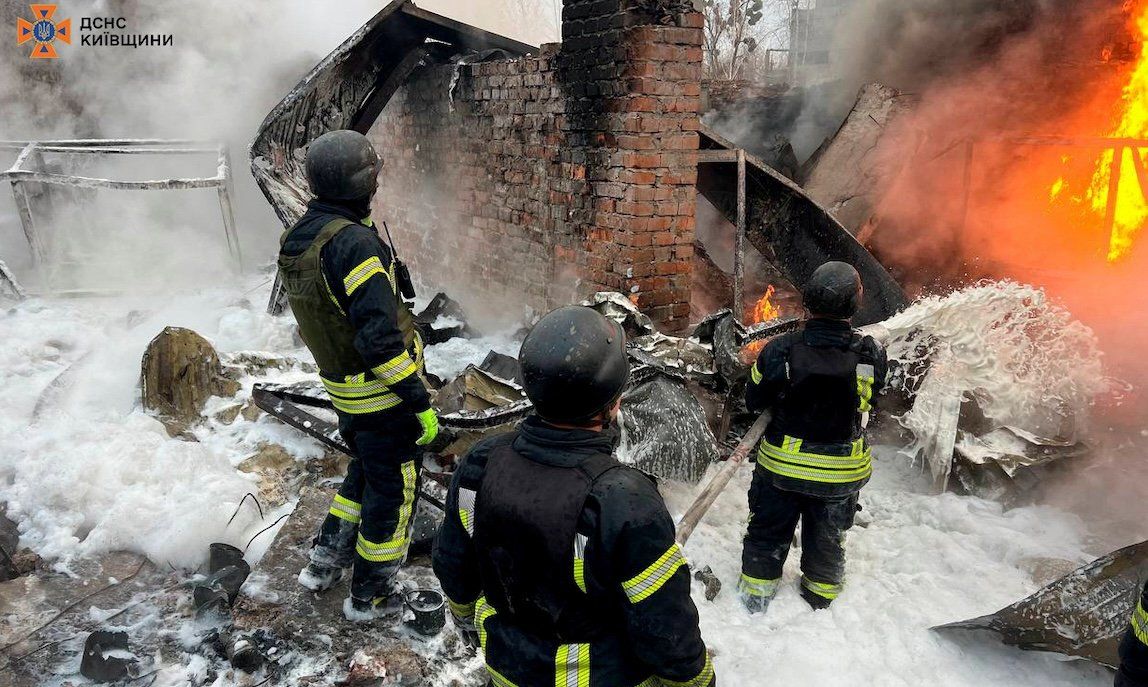Firefighters work at the site where an industrial area was hit by a Russian missile strike in the Kyiv region on Nov. 13, 2024.
Press service of the State Emergency Service of Ukraine in Kyiv region/Handout via REUTERS
On Wednesday, Russia attacked Kyiv, Ukraine’s capital, with both missiles and drones for the first time in 73 days, forcing some residents to take shelter in the city’s metro stations deep underground. No one was killed, but the attack suggests Russia intends to intensify the psychological war it’s waging on Ukrainian civilians.
The attack also renewed fears that, with the approach of winter, Russia will again attack energy infrastructure targets in Ukraine to leave parts of the country without power or heat for extended periods. Ukraine’s state-owned national power company announced on Wednesday that new limits will be imposed on electrical supply for businesses in and around Kyiv and in the regions of Odesa, Dnipro, and Donetsk.
